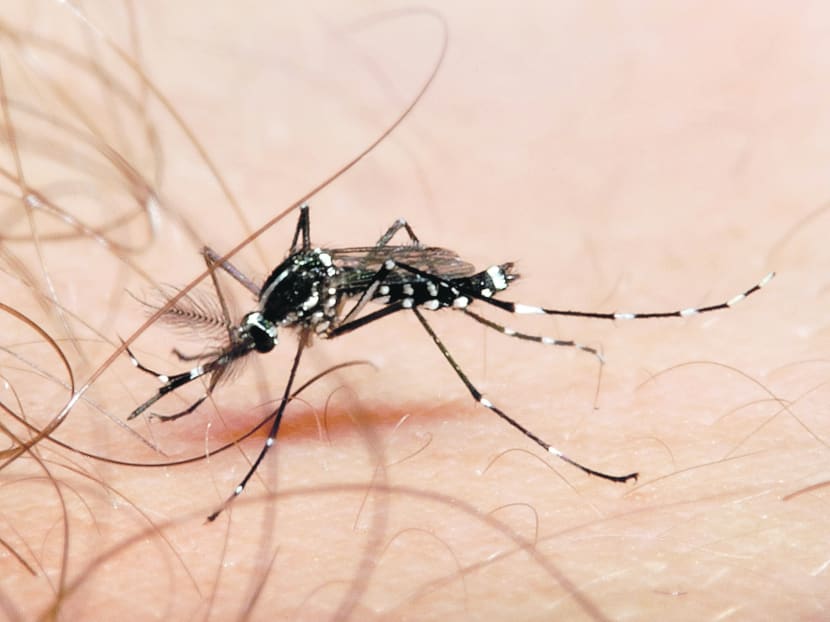Duke-NUS researchers make dengue breakthrough
SINGAPORE — Researchers here are potentially one step away from finding a cure for dengue.
SINGAPORE — Researchers here are potentially one step away from finding a cure for dengue.
Scientists at Duke-NUS Graduate Medical School have discovered an antibody that can kill all strains of the dengue serotype DENV-2, one of two common serotypes in Singapore. The researchers are in the midst of developing a cocktail of drugs that can kill all four dengue serotypes, having found the DENV-1 antibody in 2012 and the DENV-3 antibody in February this year. They will next need the antibody for serotype DENV-4.
Succeeding where other antibodies have failed, the new antibody can bind to the DENV-2 virus before and after it has morphed.
The DENV-2 virus is more complex than other serotypes because it changes its structure in the human body, preventing previous antibodies from binding to the new structure. The latest clinical trials of other antibodies showed some success for other serotypes but not DENV-2, said Associate Professor Lok Shee-Mei, who led the research.
The new DENV-2 antibody can treat dengue before and after infection, as well as prevent severe disease in patients who had been previously infected by other dengue serotypes. The antibody will undergo clinical trials in two to three years.
Infection with one serotype may prime a patient for a more serious infection by other serotypes. In Singapore, DENV-2 and DENV-1 are the most common serotypes for infection.
A cocktail of drugs with potent antibodies to kill each of the four serotypes at the same time is needed, said Assoc Prof Lok, whose team’s research paper was one of two by Duke-NUS published today in the international journal Science.
The other Duke-NUS team has found a way to identify which DENV-2 strains may lead to an epidemic. This could help health authorities in deciding which dengue clusters to allocate manpower to, so as to control mosquito populations during an outbreak.
Within the DENV-2 serotype, various strains can emerge as the virus mutates, with some spreading more easily than others.
In studying virus strains from a 1994 dengue epidemic in Puerto Rico, the second team found a mutation in the tail of the dengue genome that allows the virus to suppress the human immune response.
Virus strains with this mutation spread faster in the body and infect more mosquitoes, which, in turn, infect more humans.
“Identifying molecular signatures that allow the viruses to spread more efficiently could help focus public health resources on more important strains of viruses,” said Assoc Prof Ooi Eng Eong, the lead researcher.
Duke-NUS’ Emerging Infectious Diseases research programme focuses on diseases that have a significant impact on Singapore and the region, such as dengue, said Professor Patrick Casey, senior vice-dean of research.







